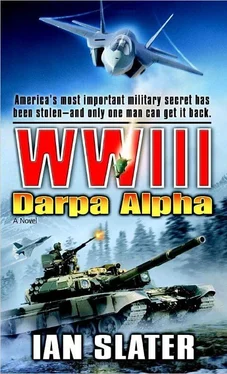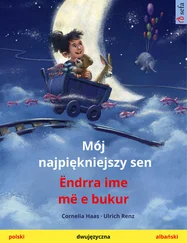A marine lurched forward, his insides blown across the aisle. There was a tremendous flapping noise as ragged aluminum edging from the fist-sized hole that had been shot out of the Stallion’s starboard side trembled violently like a flag in a stiff gale. There was panic, half a dozen marines covered in entrails and blood, one of the most disgusting sights Freeman and his team had ever seen. The crew chief, though, had witnessed it before, and with astonishing agility, given the crazy gyrations of the Stallion as its pilots fought to regain control after the impact, he had produced two large khaki plastic bags, which he dumped at the feet of those covered in the blood and entrails which, moments before, had been their buddy, Private First Class James Cartwright.
“This bag,” yelled the crew chief, opening one, “has clean rags in it. The other is for the dirty rags. Got it?”
One marine, his face splattered with his dead comrade’s blood and other unidentifiable pieces of flesh and bone, couldn’t respond, his eyes frozen, his body rigid with fear. The crew chief shook him hard by the shoulder, the chief’s canvas glove immediately soaking up blood. “Hey!” shouted the chief, his right hand grabbing the marine’s chin. “You hear me, Marine?” He said it with a DI’s command voice, an undisguised call to duty, a tone born and bred daily by the corps, in the corps, for the corps. The marine answered the crew chief by assuring him that he was okay.
Freeman glimpsed a marine beside him. It was Melissa Thomas, down on her knees by the dead marine, placing a red gelatinous lump of something she picked up into the dump bag. The AA fire was already past, but no one noticed for several seconds. Freeman’s team had seen dead and dying from Southeast Asia to Iraq, but several of the marines were traumatized by the sight of one of their comrades with his entrails blasted out of him. Aussie assured the traumatized marine, “You’ll be right, mate. Hang on.” Unable to find his “lunch bag” in time, the marine was throwing up violently into his helmet. He fumbled for his canteen.
“Nah,” said Aussie, giving the marine his own sick bag and taking the man’s helmet from him. Aussie turned to the crew chief. “Got some extra water, Chief?”
“Right with you,” said the chief, and went back to his seat under which he had a four-gallon plastic drum of distilled water, which he passed to Aussie. The SpecFor man dumped the helmet’s contents into the big plastic “out” bag. The cloying stench of sick mixing with the smell of aviation exhaust was enough to make several others feel ill, including Johnny Lee and Choir. Aussie washed out the sick marine’s helmet, and gave it back to him. His name patch read “R. Kegg.”
“Listen,” Aussie lied to the grateful young marine, who looked no older than sixteen, “combat’ll be easier than this.”
The marine nodded. “Thank you, sir.”
“Anytime, mate.” Aussie could see, however, that the young marine was abnormally strung out with anxiety. “Listen, press your tongue hard up against your palate. It forces you to breathe deeply. You’ll relax.” Aussie paused. “They teach you that at Parris?”
“I wasn’t at Parris, sir,” the youngster said, almost apologetically.
“Oh,” said Aussie. “So you must live west of the ole Mississippi. “You were trained at Point Loma then?”
“Yes, sir. I’m a — I’m a ‘Hollywood Marine.’” He tried to smile.
“So, did they teach you that trick?”
“What — oh, about pressing—”
“Yeah, pressing your tongue against the roof of your mouth?”
“No, sir.”
“Well, what the fuck did they teach you?” said Aussie, smiling. He turned to Melissa Thomas, who was helping to clean up the mess. “Did you learn that at Parris?”
“I’m not sure,” she answered, embarrassed by the sudden attention.
“Not sure? Hey!” Aussie yelled so loudly he startled young Kegg. “You marines! Listen up. A tip from Uncle Lewis. On long op flights, or short ones, in any sticky situation, you press your tongue hard up against your palate. You will get more oxygen. It helps, believe me!”
“Who are you?” demanded a marine.
“Grandstander!” offered another.
Aussie ignored them and winked at Melissa, who was helping him and who, unlike some of the others, understood that Aussie Lewis was only trying to boost morale, distracting them from the horror that had been visited upon them by the anti-aircraft fire.
“You’ve seen this stuff before,” Aussie told Melissa.
“I was a nurse’s helper in an ER for a while,” she replied. “Before I joined the corps.”
“Good for you, marine,” said Aussie.
Melissa returned the smile which, given the bloody circumstances aboard the Super Stallion, struck some of the marines as disrespectful at best, at worst, obscene, in the presence of the dead marine. But Melissa couldn’t help her response to Aussie; it was the first time since Parris that a man, and a renowned SpecWar warrior at that, had said something so warmly to her.
“Thank you,” she said.
“He made a pass at you?” taunted one sullen marine as Melissa returned to her seat at the rear of the helo and buckled up.
“No,” she replied. “He said something nice to me.”
“I’ll bet.”
“Hey, Thomas,” asked a marine who was nursing a SAW. “This Aussie. Isn’t he the guy who coldcocked that A-rab fanatic?”
“All A-rabs are fanatics,” proffered a mortar squad loader.
“Bullshit!” said another marine.
“Whatever he used,” said the SAW marine, “that’s him. Right? That’s Aussie Lewis?”
“Yes,” said Melissa. “That’s him.”
“My old man told me ’bout that convoy,” put in another marine. “The A-rab was belted and was using a baby as cover, tryin’ to blow up the whole fuckin’ convoy when Thomas’s boyfriend here wasted the fucker. So, technically, he didn’t coldcock him. He used a shotgun.”
“Horseshit!” argued another. “The Aussie took him out with a piece.”
“I heard the crazy bomber was a woman,” said the mortar loader.
“Whatever he used,” repeated the SAW marine, “that’s him. That’s Aussie Lewis.”
“What happened to the baby?” another marine inquired.
“Who knows?”
“Probably died,” concluded the loader. “Either that or he’s a martyr by now, ready for all those virgins.”
Melissa saw something move up forward in the semidarkness and instinctively gripped her rifle. It was the crew chief checking his watch against the speed indicator, his sudden movement unnerving her, everyone on edge. “Twenty minutes to amber,” the chief announced.
“Twenty minutes ?” growled one of the SAW gunners. “Feels like we’ve been up here twenty hours .”
Choir Williams was looking pale again. The fact that he had never complained about his motion sickness was one of the things Freeman admired most about the warrior.
The general moved down the lines, chatting with the marines. It was hard physical work talking against the racket of the three engines, the rotors, and the bone-juddering vibrations that followed the AA fire. But he kept at it, exuding confidence and strength, talking casually to the troops about anything, surprising them with his grasp of detail, as when he passed Melissa Thomas, explaining to her how the end of the Cold War had spawned two Russias: On the one hand there was the affluent, technically savvy Russia, and on the other, the outmoded but still politically powerful Communist Russia. They were in fierce opposition, jockeying for who would rule in the twenty-first century. “The Russians, like us,” he pointed out, “like any sensible army, don’t go into a fight advertising who their officers are. Hell, their Spetsnaz — SpecWar troops — don’t wear any insignia at all. But you can tell who’s in charge.” The general looked at Melissa and her squad. “Anyone know how?”
Читать дальше












